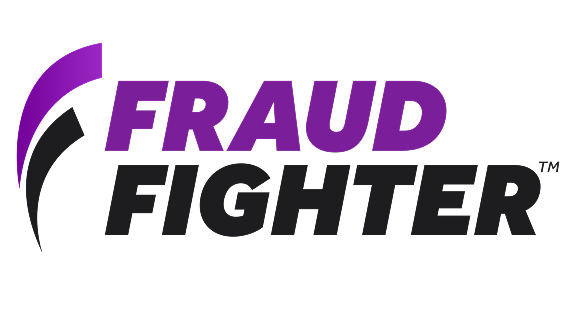
Lionel Messi faces possible jail time for tax fraud
 On October 9, Spanish newspaper El País reported that state lawyers representing Spain’s Treasury will be pursuing 3 counts of tax fraud against FC Barcelona star Lionel “Leo” Messi and his father, Jorge Horacio Messi – effectively rejecting the Public Prosecution Office’s October 7th request to drop all charges against Lionel Messi and only charge his father.
On October 9, Spanish newspaper El País reported that state lawyers representing Spain’s Treasury will be pursuing 3 counts of tax fraud against FC Barcelona star Lionel “Leo” Messi and his father, Jorge Horacio Messi – effectively rejecting the Public Prosecution Office’s October 7th request to drop all charges against Lionel Messi and only charge his father.
Just one day after the request, the judge overseeing the case denied the request, following a report produced by state lawyers giving reasons as to why Lionel Messi should be charged alongside his father. If the Messis are found guilty, each could be sentenced up to 22 months in prison on top of facing heavy fines. A trial date has yet to be set.
The Alleged Tax Fraud Scheme
It should be mentioned that 28-year-old Messi, an Argentinian, is able to be charged by the Spanish government due to the fact that he has gained Spanish citizenship in 2005 after having lived in Barcelona since 2000 – and as a Spanish citizen, he has an obligation to report all domestic and foreign-earned income on his Spanish tax returns.
When Messi’s alleged tax fraud story since it first broke in the summer of 2013, only Jorge Messi was initially charged. He was – and still is – accused of transferring Lionel Messi’s image rights and contracts to several shell companies located in tax havens, such as Uruguay and Belize, between the years 2007-2009 in order to prevent royalties and other image licensing income from being reported on tax returns, and thereby avoiding €4.165 million ($5.5 million according to currency exchange rates in 2013) in tax payments by filing falsified tax returns. The initial charge was later amended to include Lionel Messi as an accomplice to his father's tax fraud scheme.
The Messi’s lawyers have argued – even to the agreement of the prosecution – that Messi was never in charge of his own finances and thus should not be charged with being involved with any tax fraud activities. Ever since he was a minor, Messi had left his father in charge of all things related to his finances. His father, in turn, had used several third parties and agents to help organize his son’s finances; it is one of these agents that the Messis are alleging is behind the fraud.
Although the prosecution has agreed that there was insufficient evidence that Messi had knowledge of, much less a hand in, the tax fraud scheme, the judge in charge of the case and Spain’s Treasury do not agree. The state lawyers representing Spain’s Treasury remain convinced that Messi acted “de forma consciente y voluntaria”, which translates to “consciously and voluntarily”.
To be clear, the most recent development of this case is akin to a District Attorney requesting charges be dropped against a Defendant due to a lack of sufficient evidence while also having an Attorney General insisting that there is indeed enough evidence to conclusively prove what the Defendant was thinking.
Whether or not either Messi will be successfully charged with tax fraud depends on the difference between “tax avoidance” and “tax evasion”, and the use of “tax havens”.
According to the charges, Jorge Messi allegedly used tax havens for tax evasion, as opposed to tax avoidance, meeting the requirements for tax fraud. And although Lionel Messi is more than likely to have not been aware of the fraud, he may be found guilty as well:
“While the Tax Agency’s legal representatives admit in their written prosecution . . . that Leo Messi is “unfamiliar” with tax issues, he “cannot be ignorant of the fact” that much of his income for image rights was coming from firms set up in tax havens.”
- El País
Tax Avoidance vs. Tax Evasion
The main difference between tax avoidance and tax evasion is that tax avoidance is legal and tax evasion is illegal.
Tax avoidance means using the tax code to your advantage – to reduce the amount you owe in taxes based on reported income. You may have heard about folks donating a sizable chunk of money at the end of the fiscal year in order to reduce the amount of taxable income to the next lower tax bracket, where the tax rate is lower. This is a completely legal maneuver to lower the amount of taxes one has to pay.
Tax evasion is the practice of deliberately altering the reporting financial activities to reduce the amount of taxes owed. You may have heard about folks “neglecting” to report income from self-employment, reducing the amount they owe in taxes. This is an illegal maneuver to lower the amount of taxes one has to pay.
Essentially, whether an activity falls under tax avoidance or tax evasion is quite simple: if you have reported all income and are manipulating said reported income, you’re in the clear. In other words, as long as you have not deliberately omitted, altered, or mislabeled income, you are able to structure your reported financial activities such that you pay the least amount of tax possible.
Benjamin Franklin wittily pointed out that “nothing is certain except death and taxes”, and as such, people throughout history have been on a mission reduce the amount of taxes they owe. This is where tax havens come into the picture.
Tax Havens
It may come as a surprise, but tax havens are actually legal. The term “tax haven” simply describes a country or territory in which there are low or no tax rates for certain types of income. Perhaps as old as the concept of taxes, tax havens have long been used as a means to avoid paying taxes in countries with high rates.
Tax havens are not only legal, but so popular that virtually all multinational corporations utilize tax havens. Apple, Amazon, Facebook, Starbucks, and Walt Disney (yes, even Walt Disney) are just four examples of over 350 multinational corporations that have or still are using tax havens to not pay an estimated combined total of $21 trillion.
Along the same vein as tax havens, the term “shell company” should be mentioned. A shell company, like a tax haven, is not illegal, but is often used for illegal purposes. Unlike regular companies, a shell company does not actually do any business – its purpose is to be a kind of middleman for another company’s operations. Shell companies almost always have no physical location, have no staff, and layered in anonymity; the owners of the company are often only able to be figured out after following a labyrinth of paperwork. Shell companies are what corporations typically use to avoid taxes at tax havens.
When it comes to the Messi case, it seems the concern is about the use of tax havens and their alleged use of hiding image rights income through shell corporations versus simply having a lower tax rate, and whether or not either Messi had any knowledge of the fraud.
Leo Messi on his Tax Fraud Case
According to a post on June 12, 2013 on Leo Messi’s Facebook page, he stated that it was through the media that he learnt of the surprising tax fraud charges, considering they “have always fulfilled all our tax obligations, following the advices of our Tax Consultants who will take care of clarifying this situation”.
In August 2013, the Messis voluntarily paid approximately €5 million as a corrective payment in order to cover the alleged taxes owed along with the interest it would have accumulated.
The same day the judge announced his rejection of the prosecution’s most current request, FC Barcelona released a statement that declared solidarity with the Messis and their innocence.
There has been speculation that the Instagram post by Leo Messi on October 9, 2015 with the caption “Y así estoy yo H” – which translates to “And this is how I feel H" – is directed at Spain’s tax office: the Spanish word for “tax office” is “hacienda”.
Although Messi is currently out with a knee injury, fans of FC Barcelona shouldn’t worry that he will miss any games when he returns due to his tax fraud case. Messi is such a key player that a government lawyer has admitted that hearings could be postponed “if a valid reason were substantiated”, which includes any clashes with fútbol games. It is worth noting that the same government lawyer has also stated that the government isn’t necessarily looking to punish anyone with a prison sentence but is required to pursue charges if there is an indication of tax fraud; the likely outcome, according to him, will be a substantial fine.





.png)
